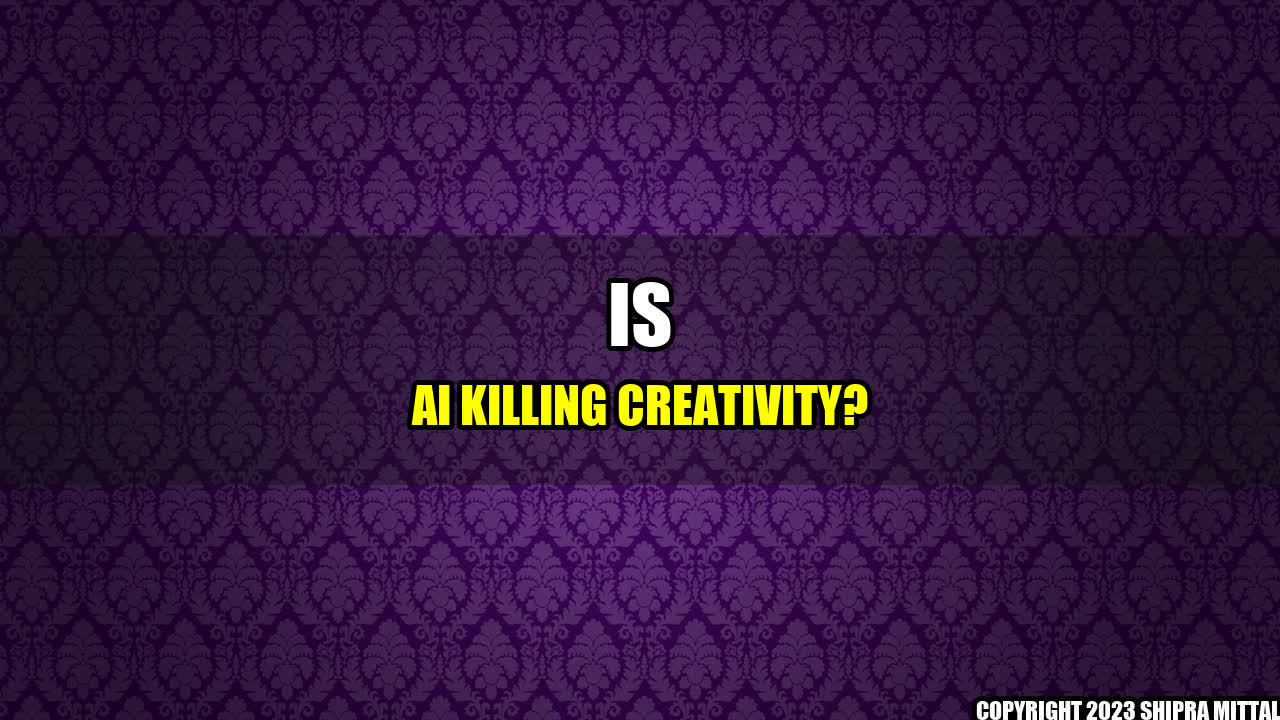Once upon a time, a young graphic designer named Sarah was struggling to come up with a fresh visual concept for her new project. After hours of brainstorming, she decided to turn to AI for help. She fed the machine with some brief and waited for the results, hoping to get some innovative ideas. However, what she received was a series of generic images that lacked depth and originality.
Is this the future of creativity?
There has been a lot of buzz lately around how AI is transforming different aspects of our lives, and the creative industry is no exception. While some argue that AI is a game-changer that will revolutionize the field, others think that it is a threat that may kill creativity as we know it.
AI: The double-edged sword
On the one hand, AI has already proven its potential to empower and enhance the creative process. For instance, AI-powered tools can now help designers generate logos, layouts, and typography based on a set of preferences, effectively saving them time and effort. Similarly, AI can assist filmmakers in producing realistic special effects and create customized soundtracks that set the mood of a film.
On the other hand, relying too much on AI can stifle creative thinking, reduce the diversity of ideas, and produce generic solutions. As Sarah experienced, AI-generated visuals may be competent, but they lack the personal touch and emotional resonance that comes with a human touch. Additionally, AI algorithms are only as good as the data they are trained on, which means that they may perpetuate biased or stereotypical viewpoints if the datasets are incomplete or partial.
Three takeaways to consider
So, where does this leave us? Will AI kill creativity, or will it transform it in unimaginable ways? Perhaps neither one of these scenarios is entirely accurate. Here are three takeaways to consider:
- AI can be a valuable ally in the creative process, but it should be used as a tool and not a substitute for human creativity. Designers, writers, and artists should embrace AI's potential to expand their skillset, automate repetitive tasks, and streamline workflows while remaining aware of its limitations and ethical implications.
- Creativity is a complex and multifaceted phenomenon that cannot be reduced to a set of formulas or rules. While AI can assist in generating ideas, it cannot replace the human intuition, empathy, and originality that drives real innovation.
- As AI becomes more integrated into the creative industry, it is crucial to address the ethical concerns around data privacy, bias, and accountability. Designers, developers, and policymakers must work together to ensure that AI is deployed responsibly and transparently and that its impact on society is carefully monitored and regulated.
References and further readings
- "Can AI be creative?", BBC Future, https://www.bbc.com/future/article/20190326-can-ai-be-creative
- "AI is empowering creative people, not replacing them", The Next Web, https://thenextweb.com/podium/2019/01/10/ai-is-empowering-creative-people-not-replacing-them/
- "How is AI transforming creativity?", The Guardian, https://www.theguardian.com/media-network/2019/jan/28/how-is-ai-transforming-creativity

Social
Share on Twitter Share on LinkedIn